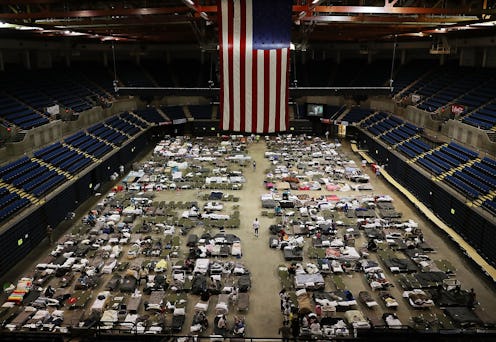The floods in Louisiana, which the American Red Cross characterized as the worst natural disaster in the U.S. since Hurricane Sandy, ended a couple weeks ago, but the recovery process is far from over. New data concerning the floods indicates more severe damage than was previously believed, with the Associated Press reporting that as of Aug. 29, more than 1,400 people were still in shelters.
More than 100,000 homes were damaged, which Colorlines reported is 40,000 more than previous estimates. A Baton Rouge Area Chamber report released last week elaborated on these statistics by providing preliminary analysis of the severity of the floods. According to the report, more than 145,000 homes in the Baton Rouge region were located in flood areas, and 41.5 percent of all homes within the nine parishes of the Baton Rouge and Capital Region are located in areas that reported experiencing flooding.
The estimated value of all of these homes combined is $30.4 billion, but the report makes it clear that this figure simply refers to the combined value of the homes, and not the actual damage amount, which will be lower. Moreover, the report clarifies that even these new numbers still do not capture the full extent of the damage caused by the floods.
Businesses in the Baton Rouge region were among those affected by the flooding. The report stated that the hardest-hit industries in the region were retail, construction, healthcare, manufacturing, and places providing food and drink services. But businesses in other Capital Region parishes, especially Livingston, Ascension, East Feliciana, and St. Helena, were impacted even more severely.
The Federal Emergency Management Agency responded to the Louisiana floods by approving more than $277 million in recovery grants, opening 22 assistance centers across the affected parishes, and deploying over a thousand housing inspectors on the ground. Nevertheless, FEMA has still come under fire from politicians like John Mica, a Republican representative from Florida, who think it should be acting more quickly.
While FEMA is working to provide resources, FEMA Administrator Craig Fugate has expressed concern that Americans still aren't paying enough attention to what Louisiana residents need. For that reason, a number of other organizations, both nationally and within the state, are working to provide them with the needed resources and services. The flooding may have ended, but these organizations still need a lot of help to provide critical resources like food, housing, and medical services, and the latest numbers from BRAC prove that we can't look away just because the floods aren't making as many headlines anymore.
